
How To Know Japanese Authors And Their 10 Best Japanese Books
How To Know Japanese Authors And Their 10 Best Japanese Books What are the best Japanese books? Japan is a well-known country, rich in traditionsand
Dutch literature, although often overlooked compared to its European counterparts, brings a unique perspective to world literature. After all, Netherlands has a rich history, cultural diversity, and a progressive society.
Similarly, modern Dutch history is also complex, particularly its experiences during World War II. So, it wouldn’t be a surprise if many of the best Dutch books in this post are about the occupation of the Netherlands and its aftermath on Dutch society.
An equally fascinating aspect of the Dutch, for which the world admires them, is their ability to find creative and innovative solutions. The Delta Works, urban infrastructure, floating houses, and other such solutions are prime examples. Well, I will mention a Dutch book or two that explores these achievements.
You will be delighted to see how Dutch books blend pragmatism with imagination. After all, the Dutch wouldn’t have made such remarkable progress otherwise. So, in this personally curated list of the best Dutch books, I will cover the diversity and depth of Dutch literature.
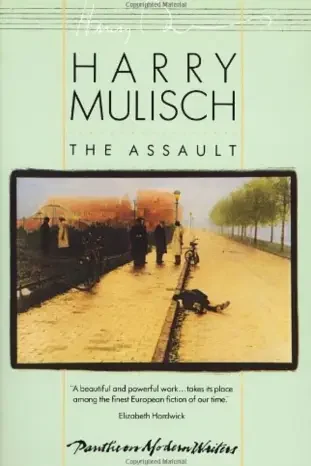
The Assault is one of the classic Dutch literature books by Harry Mulisch, one of the greatest Dutch authors. The novel is set against the backdrop of the Nazi-occupied Netherlands. It explores the long-lasting impact of a single wartime incident on Anton Steenwijk, the protagonist.
During the winter of 1945, Anton Steenwijk, as a child, witnesses the murder of a Nazi collaborator. This event brings tragic consequences, such as the brutal murder of his family and the destruction of his home.
As Anton grows older, he tries to forget the horrors of that night, but the past haunts him. In the novel, he also encounters various people connected to the assault. However, everyone has different revealing perspectives. These encounters force Anton to confront his buried emotions and the moral ambiguities surrounding the incident.
It is one of the best Dutch books that delves deep into the impact of World War II on Dutch society. You can check the English translation on Amazon.
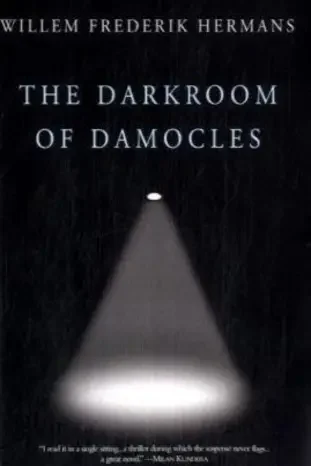
The Darkroom of Damocles by Willem Frederik Hermans, published in 1958, is another Dutch literature classic. Set against the backdrop of World War II, it is known for its complex narrative and philosophical depth.
Henri Osewoudt, a tobacconist in a small Dutch town, is drawn into the resistance movement by the Dorbeck, who looks strikingly similar. Tasked with carrying out dangerous missions, Osewoudt has to do some covert operations and assassinations.
As the war progresses, the lines between right and wrong blur, and Osewoudt questions morality amid the chaos of war. Strangely, Osewoudt is arrested by the Allied forces, accused of collaboration with the Nazis. Unable to prove Dorbeck’s existence, he struggles to defend himself against the charges.
However, time is running out for Osewoudt. So, he desperately tries to uncover the truth and clear his name, raising profound questions about identity, responsibility, and reality.
It is one of the best Dutch books that tests the human condition under extreme circumstances. The English Patient is another similar novel in which Almásy is detained as a spy when he is looking for help to recover his girlfriend. I covered The English Patient in the best historical fiction books.
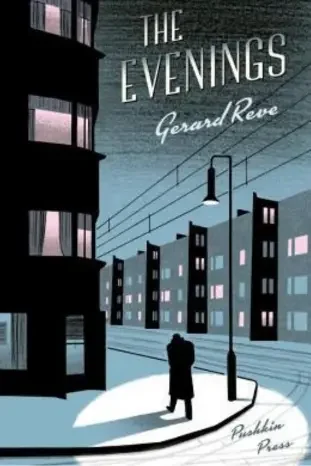
The Evenings, first published in 1947, is one of the most important Dutch novels of the 20th century. It is a darkly humorous and introspective look at post-war Dutch society.
The novel follows ten evenings in the life of Frits van Egters, a 23-year-old office clerk living with his parents in Amsterdam just after World War II. Frits spends his evenings visiting friends to have conversations to overcome his boredom and despair.
Throughout these evenings, Frits comments on the absurdity of his surroundings with dark humour and cynicism. He’s particularly annoyed by the physical decay and makes morbid remarks about baldness, illness, and death to his family and acquaintances.
Reve’s stark portrayal of post-war Dutch society and its character’s unsettling nature with the society was quite timely. After all, it challenged the optimism of the era. The novel’s humour and examination of everyday life make this one of the best Dutch books. You can also check coming of age movies if you like this coming-of-age psychological story.
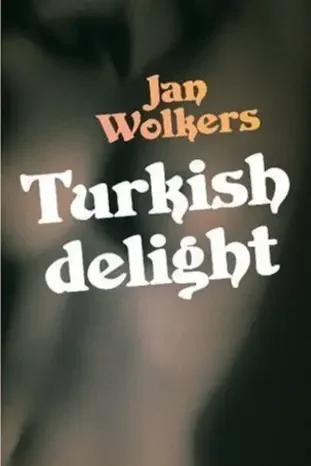
Turkish Delight is quite a controversial and influential novel in Dutch literature. It shocked readers with its explicit content and raw emotional intensity, the first work of this nature in the Netherlands.
The novel centres on sculptor Erik van Poelgeest and his relationship with Olga Stapels. When Olga leaves Erik, he reflects on their relationship in an all-consuming animalistic desire that defies social norms and expectations.
The novel further explores the couple’s intense sexual encounters, their struggles with societal pressures, and the eventual deterioration of their bond.
Wolkers’ uncompromising prose style starting the novel with ‘And’, and his exploration of themes such as love, sex, death, makes Turkish Delight one of the best Dutch books. The book was later adapted into a successful film, further solidifying its cultural impact.
The novel was also adapted into a movie with the same name. It was nominated for Best Foreign Language Film in 1974. You can stream the movie on Amazon Prime and order the book on Amazon.
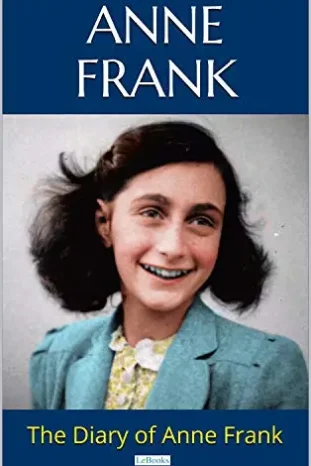
The Diary of a Young Girl by Anne Frank is one of World War II’s most widely read books. Anne Frank wrote her diary hiding during the Nazi occupation of the Netherlands. The Dutch-language diary serves as a first-hand account of her life in Amsterdam.
She received the blank diary as a gift on her 13th birthday, 12 June 1942. However, things changed quickly as the Germans stormed Amsterdam. Eventually, she hid with her family in a secret annexe of her father’s office building in Amsterdam.
In the diary, she describes their daily life, the constant fear of discovery, and the challenges of living in confined quarters with seven other people. But her thoughts on war, humanity, and personal growth make it one of the best Dutch books.
She also writes about her aspirations, conflicts with her mother, and romance with Peter van Pels. However, the diary ended abruptly in August 1944 when the group was arrested. Otto Frank, Anne’s father, was the only survivor of the group who later published the diary.
If you are visiting The Netherlands and wondering what to do in Amsterdam, you can visit Anne Frank House. It is a biographical museum dedicated to Anne Frank.
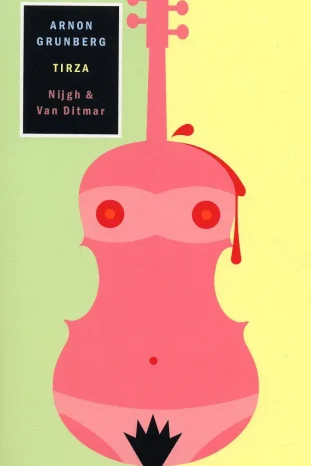
Tirza is a critically acclaimed Dutch novel about the complexities of family relationships, obsession, and the human psyche. Grunberg has written many other Dutch novels, but this is one of his most celebrated works.
Jörgen Hofmeester is a middle-aged man whose life is unravelling. His wife has left him, he’s lost his book editing job, and his youngest daughter, Tirza, is about to leave for Africa. As Tirza’s departure approaches, Jörgen fixates on her and her Moroccan boyfriend, Choukri.
Jörgen’s obsession leads him to follow Tirza to Africa, where things take an unsettling turn. His obsession drives him to madness, making him psychologically unstable with the consequences of his actions.
The novel is full of sharp wit and examination of human nature. Although Tirza looks like a disturbing read but its compelling narrative on moral judgments, makes this a unique Dutch book. You can order the book on Amazon. It was also adopted into the same name movie.
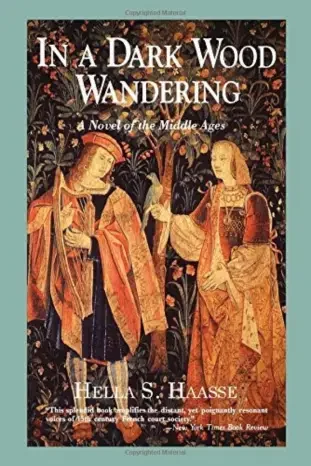
In a Dark Wood Wandering is a historical novel about medieval European history. It was published in 1949 and is considered one of the classics of Dutch literature.
The novel follows Charles of Orléans, a French nobleman and poet who lived during the Hundred Years’ War. It begins with Charles’s childhood and his capture at the Battle of Agincourt in 1415, and his 25-year imprisonment in England. It is in prison when the story begins to unfold.
During his captivity, Charles starts writing poetry and becomes deeply involved in the political intrigues of England and France. He tries to negotiate his release and reclaim his place in French society.
However, Haasse’s meticulous historical research of 15th-century Europe and powerful prose make this one of the best Dutch books.
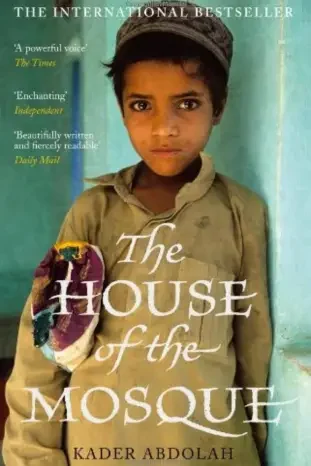
The House of the Mosque is an interesting novel because it covers Dutch and Iranian cultures. Kader Abdolah is an Iranian-Dutch writer who uses Persian literary themes and writes in Dutch. The novel, released in 2005, became an instant bestseller in the Netherlands and has been translated into many languages.
The story is set in Iran and spans three generations of a family living in a house attached to a mosque in Senejan. It begins in the 1960s and chronicles the family’s experiences through the Islamic Revolution 1979 and its aftermath.
The narrative focuses on Aqa Jaan, the head of the family and keeper of the mosque. We see the family’s struggles as traditional Islamic values clash with modernisation and, later, the rise of fundamentalism.
Abdolah’s portrayal of Iranian life in Dutch during a complex historical period makes this an interesting and unique Dutch book. Since we are talking about Iran here, don’t forget to check out the best Iranian movies.
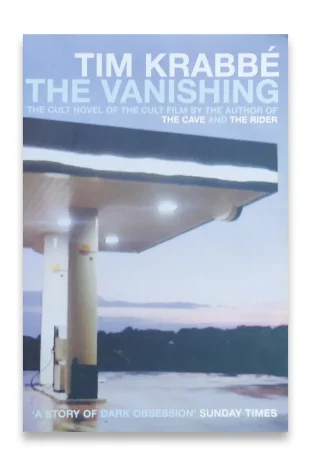
The Golden Egg is a psychological thriller by Tim Krabbé. The novel is famous for its taut narrative and unsettling exploration of obsession and loss. Krabbé’s prose turns reading into an atmosphere of mounting tension and dread, making this one of the best Dutch books.
The story follows Rex Hofman and his girlfriend Saskia Ehlvest on a cycling holiday in France. During a stop at a gas station, Saskia mysteriously disappears without a trace. Rex is devastated and tries to find out what happened to her.
Eight years later, Rex is still haunted by Saskia’s disappearance. He becomes entangled with Raymond Lemorne, who claims to know what happened to Saskia. Things turn dark as Rex’s obsession leads him to make a chilling decision.
The novel has since been adapted into successful films in both Dutch and English. In Dutch, ‘Spoorloos’, or ‘The Vanishing’ in English, the film was released in 1988 and remains one of the best Dutch movies to this day.
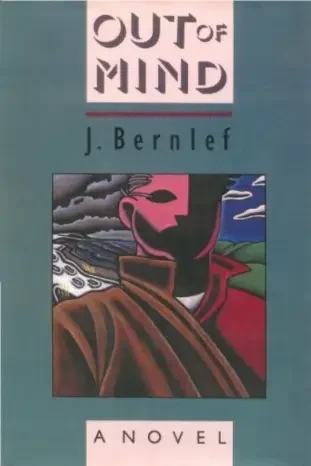
Out of Mind is one of the most significant Dutch books on dementia and ageing. It is an excellent meditation on identity, memory, and the nature of consciousness.
The novel follows Maarten Klein, a 71-year-old Dutch-born resident of Massachusetts, as he falls to Alzheimer’s disease. The narrative is told from Maarten’s perspective, so we experience his mental decline firsthand.
As Alzheimer’s takes hold, Maarten’s grip on reality loosens. He confuses past and present, struggles to recognise his wife and surroundings, and cannot communicate effectively. It is a great work that shows the frustration and fear associated with losing one’s mental faculties.
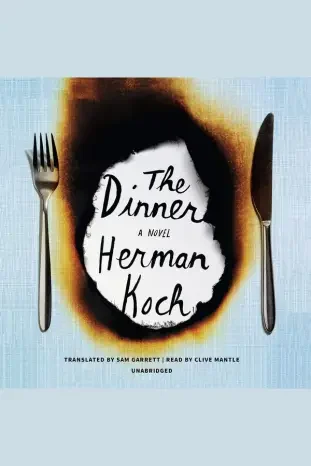
The Dinner is a darkly satirical novel that has become one of the most successful Dutch books of recent years. It’s known for its provocative exploration of morality and family dynamics.
The story unfolds throughout a single evening at an upscale Amsterdam restaurant. Two couples – brothers Paul and Serge Lohman and their wives – meet for dinner to discuss a grave matter involving their teenage sons. As the meal progresses, the true nature of their meeting is slowly revealed.
It becomes clear that their sons have committed a horrific act, caught on camera but not yet identified by the authorities. The two couples must decide how to handle the situation, leading to tense discussions that shake their relationships and moral foundations.
The unsettling nature and sharp satire makes this one of the best Dutch books by modern Dutch authors. It was also adopted into the same name movie in 2017.
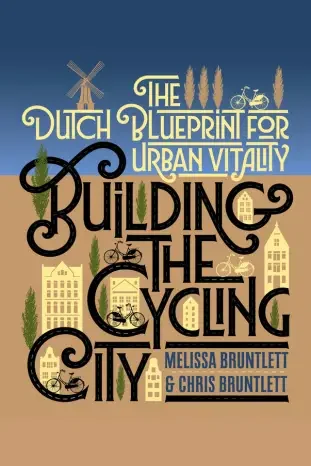
Although Melissa Bruntlett and Chris Bruntlett are not Dutch authors, this is an insightful nonfiction book about urban planning and cycling infrastructure. It offers valuable lessons from the Netherlands’ cycling culture.
The book explores how Dutch cities have successfully integrated cycling into their urban life, creating livable, sustainable, and efficient environments. The authors draw from their experiences living in the Netherlands and visiting other Dutch cities.
Through case studies and interviews, the Bruntletts examine different aspects of Dutch cycling infrastructure, including street design, bike parking solutions, and integration with public transit. They also discuss how these principles can be adapted to other cities worldwide.
Building the Cycling City is a unique book that provides practical insights into creating bike-friendly cities. It showcases the Dutch model for improving urban mobility and quality of life. You can order the book on Amazon.
In the City of Bikes is another exciting book by American writer Pete Jordan. This book is not just about the modern culture of bicycling but also covers the history of bicycling in The Netherlands from the 1890s onwards.

The Dutch and their Delta: Living Below Sea Level is a non-fiction book that comprehensively examines the Netherlands’ unique relationship with water management.
The book details the historical struggle of the Dutch people against water, from early flood control efforts to the modern Delta Works. It explains how a significant portion of the country lies below sea level and the constant challenges this presents.
The authors explore the innovative solutions developed by the Dutch over centuries, including dikes, polders, and advanced water management systems. They also discuss the social and cultural impacts of living on land reclaimed from the sea.
It is one of the best Dutch books, showing how the Netherlands has become a world leader in water management and flood control. You can check the book out on Amazon.
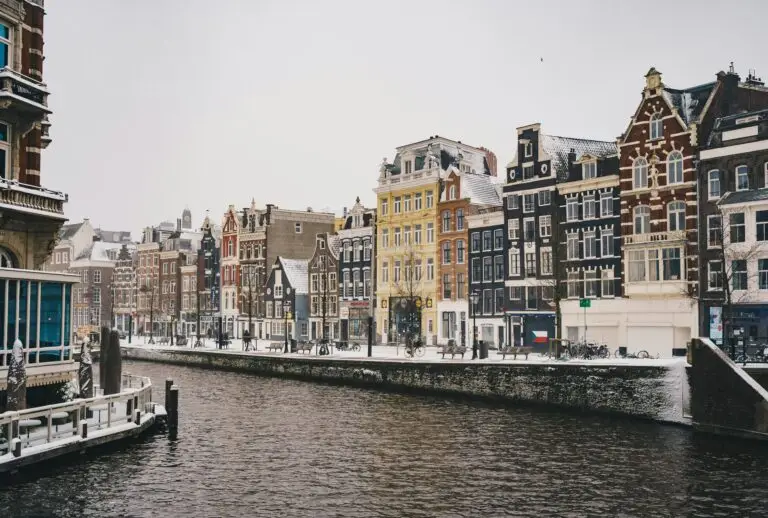
The best Dutch books I have discussed go deep into covering Dutch literature, history, and culture. These books cover topics such as war, colonialism, personal identity, and societal challenges, often with a distinctive directness that characterizes Dutch literature.
Now, I’d like to hear from you: Are there any other Dutch books you believe should be included in this list? Your recommendations can make this Dutch literature and culture even more unique.

How To Know Japanese Authors And Their 10 Best Japanese Books What are the best Japanese books? Japan is a well-known country, rich in traditionsand
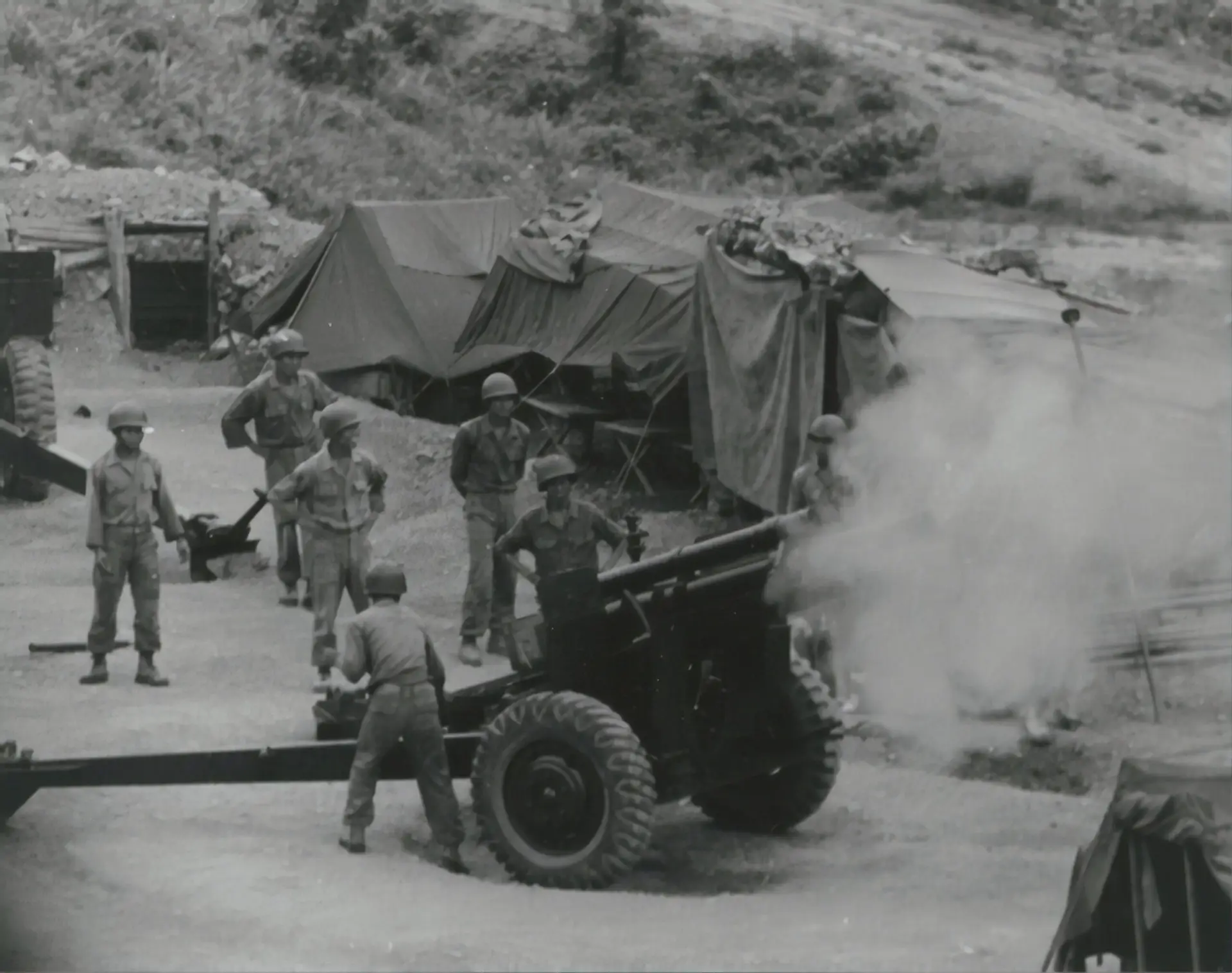
Are you looking for best books about Vietnam War? The Vietnam War marks a pivotal chapter in modern history. It has etched a complex narrative

The Ultimate Best German Books | A Top 10 There are few countries in modern history that have gone through as many major historical events

